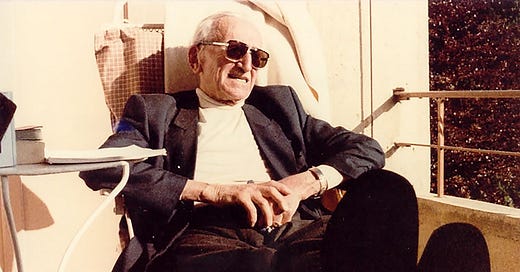In The Use of Knowledge in Society, F. A. Hayek explores a fundamental question: How can society make the best use of knowledge scattered among millions of individuals? He argues that a centralized authority cannot effectively manage the dispersed information across society. Instead, decisions are better left to individuals, each acting on their specific knowledge of time, place, and circumstance. This perspective is crucial in understanding why markets work—they leverage localized, personal knowledge that no central planner could fully access or comprehend.
Centralization vs. Decentralization
Hayek’s insight boils down to this: knowledge is inherently dispersed and decentralized. Imagine a complex economy—each person possesses unique knowledge about their own needs, capabilities, and context. Central planners lack this detailed, on-the-ground understanding, so when decisions get centralized, vital context is lost. Hayek’s work argues that economic efficiency emerges not from top-down control but from individual actions based on local insights.
"The knowledge of the circumstances of which we must make use never exists in concentrated or integrated form but solely as the dispersed bits of incomplete and frequently contradictory knowledge which all the separate individuals possess"
In modern contexts, this idea shines light on everything from government policy to corporate management. Systems relying on hierarchical decision-making often overlook the practical knowledge held by those on the front lines. Decentralized approaches, on the other hand, tap into this diverse knowledge pool, fostering flexibility and responsiveness.
Price as a Communication Tool
One of Hayek’s core arguments is about the role of prices in communicating information. Prices act as signals in a market economy, conveying information about supply, demand, and scarcity without centralized intervention. For example, if the price of a resource rises, it indicates scarcity and incentivizes conservation or innovation to find alternatives. Each price fluctuation signals new information, adjusting the behavior of consumers and producers. This, according to Hayek, is how a free market naturally coordinates complex activities without a central plan.
"We make constant use of formulae, symbols, and rules whose meaning we do not understand and through the use of which we avail ourselves of the assistance of knowledge which individually we do not possess"
Consider the real-world example of energy prices. When prices rise, people reduce consumption or seek energy-efficient solutions, which isn’t due to a government decree but because price changes signal scarcity. It’s a simple yet powerful mechanism allowing millions of individuals to coordinate behavior based on real-time information.
Beyond Economics
Hayek’s ideas extend beyond economics into broader societal organization. His insights imply that top-down policies or regulations may not only be less effective but can also stifle the creative solutions that arise in decentralized systems. In fields like technology, healthcare, and education, allowing individual knowledge and localized decision-making to flourish often leads to innovative, adaptive outcomes that centralized planning cannot achieve.
Take the open-source movement as an example. It’s a decentralized, knowledge-sharing ecosystem where individuals contribute based on specific expertise and need. This system has driven immense innovation, from software development to scientific research, proving the value of Hayek’s decentralized knowledge in action.
Hayek in a Data-Driven World
In our data-saturated society, Hayek’s insights are more relevant than ever. With vast amounts of data available, central planners or corporate executives might feel confident that they can manage or predict market trends. However, Hayek reminds us that raw data lacks context—the nuanced, real-world insight each individual holds. The best systems leverage this dispersed knowledge, allowing individuals to respond to data in ways that only they understand fully.
Embracing the Wisdom of Crowds
At its heart, Hayek’s work encourages us to trust in the wisdom of crowds. Individual actions, when aggregated, often yield solutions that are greater than any centrally planned scheme. For society, this means building systems that empower people to act on their localized knowledge and adapting based on real-world feedback.
"The marvel is that in case after case, we find that individuals adjust their activities in a way that contributes to the orderly working of society"
Hayek’s view is both practical and empowering: to thrive, societies must recognize the limits of centralized control and embrace the power of distributed knowledge. It’s a timeless reminder that, often, the best solutions come not from the top, but from individuals working within their unique contexts.




